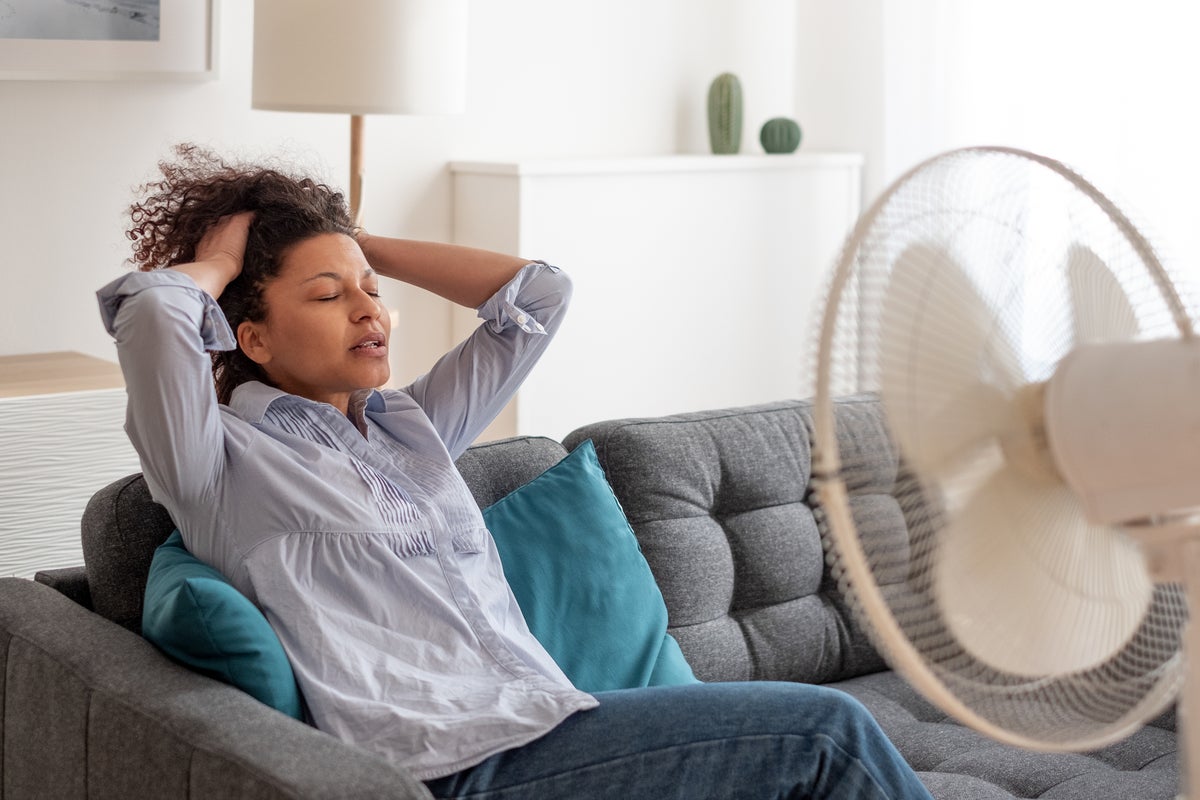
The UK is bracing itself for more warm weather this week, with temperatures again set to pass 35C.
The latest heatwave arrives just weeks after British records were broken in late July, when the mercury reached highs of 40.3C in some parts of the country.
Dr Mark McCarthy, the head of the Met Office’s National Climate Information Centre, said of those events: “We have seen temperature records tumbling. A new UK national climate temperature record should be a rare occurrence, and we would normally expect a new record to only exceed the previous one by a fraction of a degree.”
“However, we saw 39 stations across a large swathe of England exceed the previous highest daily temperature extreme, with the highest exceeding the previous record – set in Cambridge in July 2019 – by a remarkable 1.6C.”
Separately, chief meteorologist Paul Davies told Sky News that the high temperatures experienced last month were “entirely consistent” with climate change and “could become a regular occurence by the end of the century”.
During extremely warm weather, it’s important to know how to keep your home cool, especially if you do not have air-conditioning.
From closing your windows during the day to building your own DIY AC, here is what you can do to lower the temperature in your home.
Keep your curtains closed
While it may be tempting to open your curtains or blinds and let the sunshine in when it’s hot outside, doing so can actually increase the temperature of your home.
Instead, experts suggest keeping them closed throughout the day, adding that extra care should be taken with metal blinds and dark curtains, as these can absorb heat.
“Keeping your blinds closed during the day will reflect a surprising amount of heat radiating in through windows, especially during the time of day when the sun’s rays shine directly on your home,” appliance store Lowes states.
Only open your windows at night
According to OVO Energy, windows should be kept closed during the day, but once the heat starts to drop they can be opened again.
This is because temperatures fall considerably at night, meaning that opening a window in the evening will allow cool air to circulate around the house.
“Tempting as it is to fling open the windows at the first sign of heat, it’s a plan liable to backfire on you,” the company says.
“If it all gets a bit too hot during the day and you really must open a window, make sure you do so in a way that encourages a through draught. This means opening windows at opposite sides of the house and keeping doors open so the air can move through freely.”
Build your own DIY air-conditoner
While an electric fan may be one solution that can keep you cool in place of AC, there is another option you can use to make it even cooler.
Simply place a bowl filled with ice water directly in front of a fan and then switch it on. As the ice melts the breeze from the fan will pick up the cool air coming from the ice’s surface and create a cool breeze, similar to an air-conditioning unit.
If you don’t have any ice, leaving bowls of water around the house to create moisture will also help.
Turn off the tech
A surprising amount of heat is generated from appliances around the house, so avoiding charging them overnight or switching devices off can help avoid internal heat gains.
According to Dr Nerina Ramlakhan, a sleep expert at Silentnight, the optimal bedroom temperature for sleeping is between 60F and 69F (16C and 21C), and your brain needs to be slightly cooler than the rest of your body.
For this reason, she suggests turning off all electrical devices in the bedroom as these emit heat and switching off sockets too. This includes not having your phone on charge.
“A good night’s sleep is important in order to process information throughout the day as well as to repair and re-balance the body physically and mentally,” Dr Ramlakhan previously told The Independent.
Lights out
Like technology, light bulbs radiate heat, which won’t help when you’re trying to keep cool in this weather.
OVO Energy adds that conventional incandescent light bulbs generate light quite inefficiently, giving off up to 90 per cent of their energy as waste heat in the process.
As such, switching to low-energy light bulbs will help reduce overheating, as well as saving money.
Buy house plants
Indoor plants can also help cool down a home, as they can help bring moisture into a stuffy room.
“Planting trees and vegetation and the creation of green spaces to enhance evaporation and shading are other options, as temperatures in and around green spaces can be several degrees lower than their surroundings," the NHS says.







